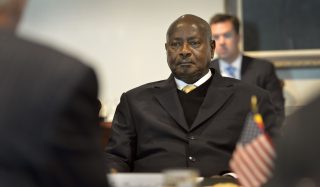Imagine being taxed for speaking, communicating, and basically exercising one of your fundamental rights as a human being.
As unimaginable or as ridiculous as it may sound, that is to be the new norm for the people of Uganda as the government imposes a tax on the use of social media by its citizens. This new tax law was passed last Wednesday, May 30, 2018, by the Ugandan parliament as part of an overhaul of an excise duty law due to take effect at the start of the next financial year in July.
According to reports, the tax would be levied daily by mobile phone operators on the SIM cards of users who access any of the social networks; WhatsApp, Twitter, or Facebook. Users will be charged 200 shillings, an equivalent of $0.0531 daily for services on any of the social networks.
Although the government has said the tax is to raise revenue, the widely held opinion is that the new law is simply a medium to stifle free speech and expression of citizens. “It’s intended to curtail the ever increasing central role of social media in political organising,” Nicholas Opiyo, a Kampala-based lawyer who also heads a local rights organization, told Reuters.
Museveni’s administration is known for employing a variety of schemes to suppress civil rights and limit debates and criticism. Two years ago during the Ugandan presidential election, his government blocked access to all social media networks in a bid to stifle the operations of the opposition.
This latest law in Uganda follows closely on the heels of the recently implemented blogging regulation in Tanzania, the Electronic and Postal Communications (Online Content) Regulations 2018. A regulation that requires intending blog owners to acquire a $930 license to blog amongst other restrictive conditions. The regulation gives the government absolute power over web content while infringing on the rights of expression of its citizens.
Like Museveni, John Magufuli of Tanzania has been widely criticized and accused of assaulting the media to limit meaningful debates and criticisms over some of his heavy-handed policies and implementing laws to silence the voice of the opposition.
The issue of press freedom is one that most African countries have in common and struggle with. From Egypt to Sudan to Rwanda, governments have established laws that out rightly or indirectly infringe on the rights of individuals and organizations to freely communicate.








